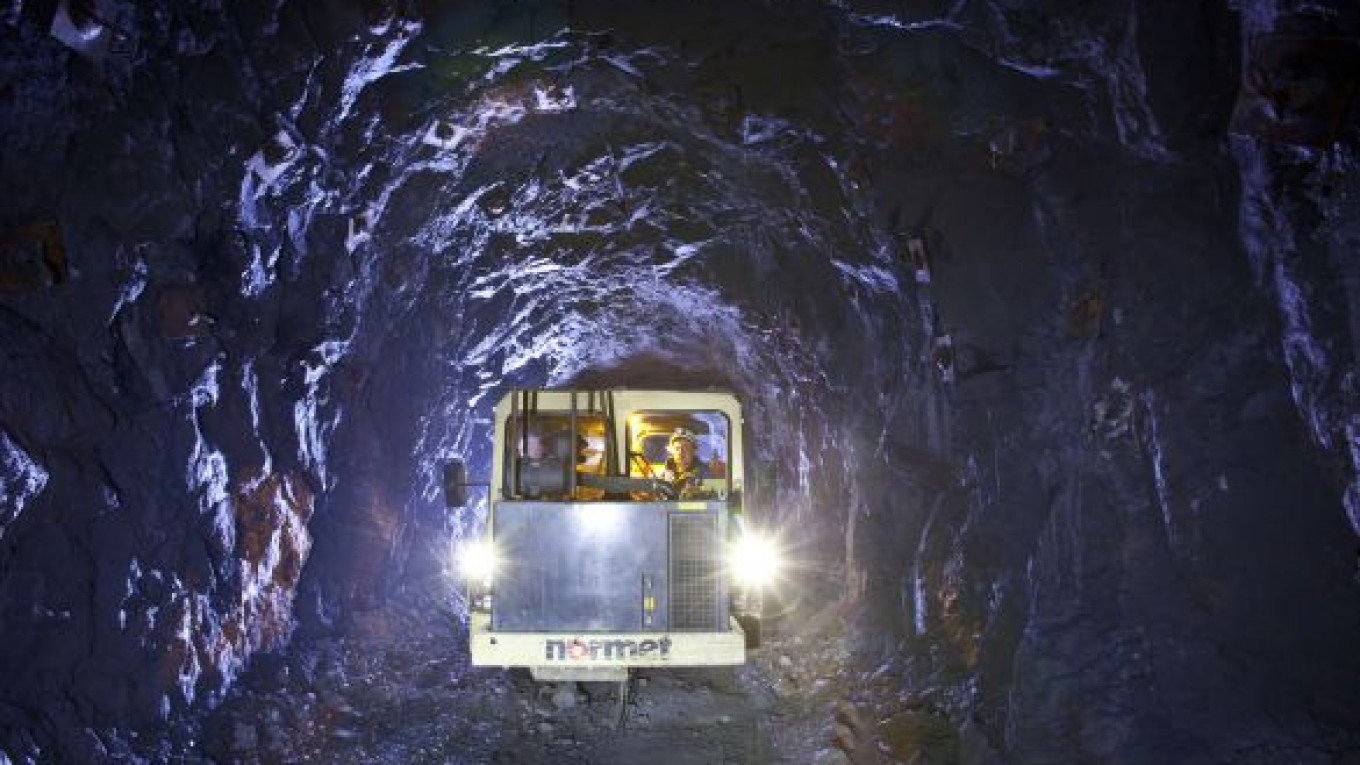Precious-metals miner Polymetal suffered a delay in starting production at a gold deposit in the Chukotka Peninsula, forcing it to cut the amount of gold it expects to produce next year.
Polymetal, controlled by entrepreneurs Alexander Nesis and Alexander Mamut along with Czech private equity investor PPF, revised down its production guidance for 2013 by 100,000 troy ounces, or roughly 7.7 percent, mostly due to a delay in the commissioning of its Maiskoye gold concentrator, previously expected to be operational in 2012.
The downgrade took the shine off a results statement in which Polymetal raised its 2012 output guidance after a strong third-quarter performance.
It said it expected output of 1.1 million troy ounces this year of gold equivalent, a measure of gold and other metals expressed in units of gold, up from a previous estimate of 1 million troy ounces.
"This [delay] slightly spoiled the festive mood from the strong third-quarter results," said analyst Nikolai Sosnovsky at VTB-Capital. "It … may be taken as an excuse by investors to sell [Polymetal] stock at the currently high level."
"We have demonstrated another record quarterly performance this year, driven by strong operational delivery at both mature and new operations," chief executive Vitaly Nesis said in a statement.
The company's third-quarter gold-equivalent production surged 48 percent to 818,000 troy ounces as compared with output from the same period last year.
The company said it expected to produce 1.2 million troy ounces of gold equivalent in 2013, including between 760,000 and 800,000 troy ounces of gold and 23 million to 24 million ounces of silver and 5,000 to 6,000 tons of copper.
Polymetal also said it would raise its dividend payout ratio to 30 percent of net earnings from an earlier announced 20 percent, saying this would bring it into line with global competitors.
Related articles:
A Message from The Moscow Times:
Dear readers,
We are facing unprecedented challenges. Russia's Prosecutor General's Office has designated The Moscow Times as an "undesirable" organization, criminalizing our work and putting our staff at risk of prosecution. This follows our earlier unjust labeling as a "foreign agent."
These actions are direct attempts to silence independent journalism in Russia. The authorities claim our work "discredits the decisions of the Russian leadership." We see things differently: we strive to provide accurate, unbiased reporting on Russia.
We, the journalists of The Moscow Times, refuse to be silenced. But to continue our work, we need your help.
Your support, no matter how small, makes a world of difference. If you can, please support us monthly starting from just $2. It's quick to set up, and every contribution makes a significant impact.
By supporting The Moscow Times, you're defending open, independent journalism in the face of repression. Thank you for standing with us.
Remind me later.


